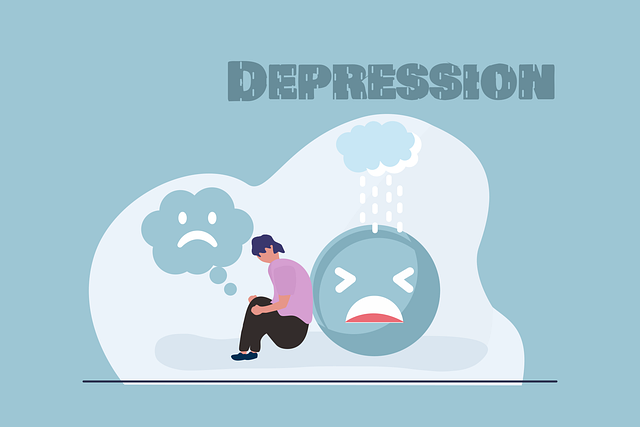Burnout among healthcare providers is a growing crisis, driven by high workload, long hours, and lack of support, leading to emotional exhaustion and reduced satisfaction. Cognitive Processing Therapy (CPT) offers a proven solution by addressing negative thought patterns, enhancing emotional resilience, and promoting positive perspectives, acting as an effective therapy for adults in the healthcare field. A holistic approach integrating CPT with strategies like open communication and peer mentoring significantly reduces stress, improves emotional well-being, and fosters a supportive culture, ultimately mitigating burnout and encouraging long-term career satisfaction.
Healthcare provider burnout is a growing concern, impacting not only individuals but also patient care and healthcare systems. This article explores strategies to prevent burnout among healthcare providers. We begin by understanding its causes and effects, delving into how Cognitive Processing Therapy (CPT) offers a powerful tool for managing stress and promoting resilience. Additionally, we present holistic approaches, combining self-care, work-life balance, and organizational support to combat burnout effectively.
- Understanding Burnout in Healthcare Providers: Causes and Impact
- Cognitive Processing Therapy (CPT) as a Powerful Tool for Burnout Prevention
- Additional Strategies to Combat Burnout: A Holistic Approach
Understanding Burnout in Healthcare Providers: Causes and Impact

Burnout among healthcare providers is a growing concern, impacting not only individual well-being but also patient care and the overall quality of the healthcare system. It manifests as a state of emotional exhaustion, depersonalization, and reduced personal accomplishment, often stemming from prolonged exposure to high-stress work environments. Healthcare professionals, especially those in direct patient care, frequently face demanding schedules, heavy workloads, and intense emotional demands, which can lead to significant mental health challenges over time.
The causes of burnout are multifaceted. High workload, long working hours, lack of control over job responsibilities, insufficient rewards, and poor organizational support are key contributors. Additionally, interpersonal relationships within healthcare settings play a crucial role; limited social support from colleagues or supervisors can exacerbate the risk of burnout. For instance, Cognitive Processing Therapy (CPT), which focuses on understanding and modifying negative thought patterns, has shown promise in treating burnout by helping providers process stressful events more adaptively. Similarly, Mind Over Matter principles emphasize self-care practices like mindfulness, stress management, and setting boundaries, offering valuable tools to combat burnout. Moreover, Healthcare Provider Cultural Competency Training can mitigate burnout related to interaction with diverse patient populations, fostering a sense of belonging and purpose.
Cognitive Processing Therapy (CPT) as a Powerful Tool for Burnout Prevention

Cognitive Processing Therapy (CPT) has emerged as a powerful tool in the arsenal against healthcare provider burnout. This therapeutic approach focuses on modifying unhelpful thought patterns and beliefs, which can significantly reduce stress and improve emotional resilience. By helping professionals process and reframe negative experiences, CPT fosters a more positive and balanced perspective, enhancing their ability to cope with challenging situations.
Incorporating CPT into routine practice is particularly beneficial for promoting emotional intelligence and social skills training. Through this therapy, healthcare workers learn effective coping mechanisms that go beyond mere stress management. By cultivating emotional well-being promotion techniques, they can better navigate the demanding landscape of patient care, ultimately preventing burnout and ensuring long-term career satisfaction.
Additional Strategies to Combat Burnout: A Holistic Approach

In addition to structured programs, a holistic approach to burnout prevention involves integrating diverse strategies that encompass both mind and body. Beyond traditional stress management techniques, emotional well-being promotion techniques like Cognitive Processing Therapy (CPT) have proven effective in addressing the root causes of burnout. CPT focuses on changing unhelpful thought patterns, thereby enhancing emotional regulation and reducing the negative impact of stressful events.
This comprehensive strategy extends to fostering a culture of support within healthcare settings. Encouraging open communication, peer mentoring, and access to therapy for adults, specifically through evidence-based practices like CPT, can significantly contribute to stress mitigation and improved emotional resilience among providers. By prioritizing both professional and personal growth, these approaches collectively promote sustainable well-being in the face of demanding healthcare professions.
In conclusion, addressing healthcare provider burnout is essential to ensure quality patient care. By understanding the causes and impacts of burnout, we can implement effective strategies such as Cognitive Processing Therapy (CPT) and holistic approaches to prevent and manage stress. CPT, in particular, offers a powerful tool for mental health support, enabling professionals to process challenging experiences and maintain resilience. Combining therapy with additional strategies fosters a healthier work environment, ultimately enhancing job satisfaction and well-being among healthcare workers.














